We are parents pushing forward research and treatments for LNPK
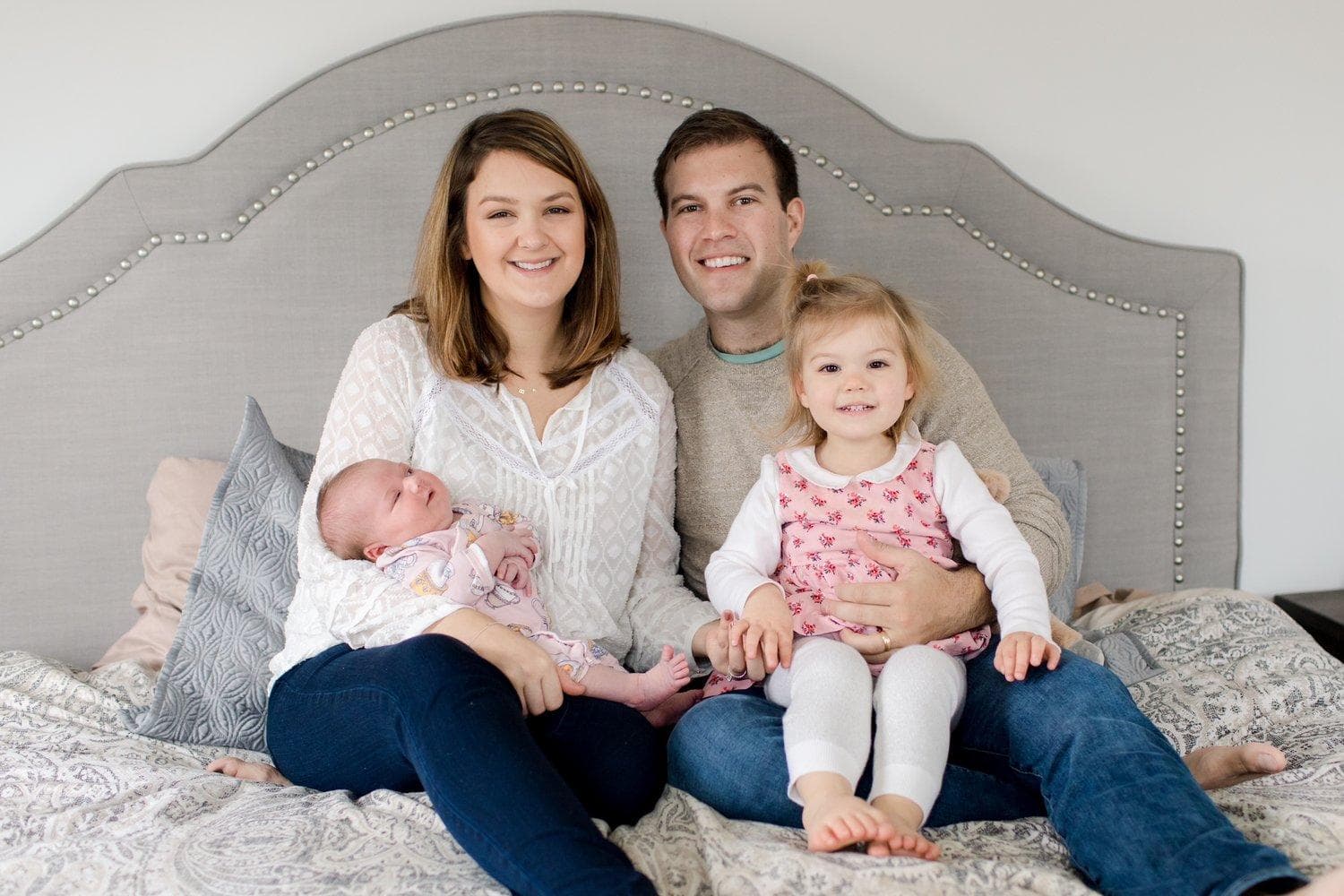
About Olive
On November 23, 2019 we welcomed our second daughter, Olive Athena Flickinger to the world. She arrived two weeks late as a beautiful, healthy 9lb 11oz baby. We always dreamed of having two girls and our family felt complete.
During Olive’s first year, we noticed that she wasn’t meeting her milestones. By 5 months, she still wasn’t rolling over and by 6 couldn’t sit up on her own. Our pediatrician suggested we wait and see, but by 1 year we knew something wasn’t right.
By 14 months, we began early intervention therapies to help Olive gain strength and sought an evaluation from a Neurodevelopmental pediatrician at Children’s National in Washington, DC. It was the middle of the pandemic and appointments were slow, but we finally met with Dr. Andrea Gropman and her Neurogenetics team to evaluate Olive.
In addition to her delays, Dr. Gropman explained that Olive had low muscle tone and oral-motor dysfunction, and suspected that the cause of these symptoms was stemming from her brain. I will never forget the pain and fear those words brought as we walked out of the hospital that day. It was devastating to learn that an expert in Neurogenetics suspected something could be wrong with Olive’s brain.
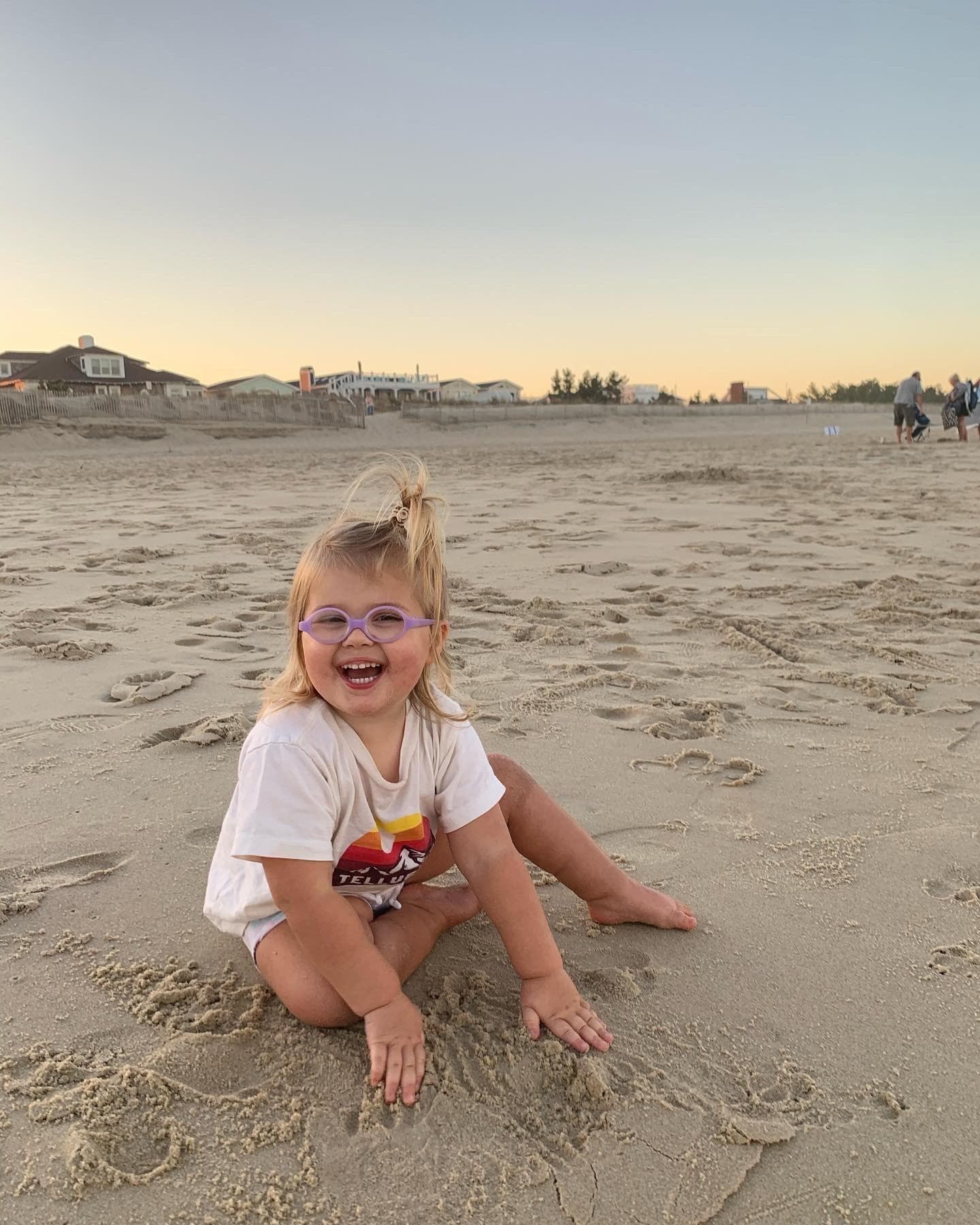
The Diagnosis Journey
After our first appointment, we began a 12 month+ diagnosis journey for Olive complete with bloodwork, urine samples, brain MRIs, and several round of genetic testing. In 2021, it was confirmed through MRI that Olive’s brain did not form as it should in utero, but we still didn’t know why. After two rounds of genetic testing returned negative results for a cause, we pursued Whole Genome Sequencing and received our results in June 2022.
Olive had inherited two autosomal recessive mutations in the LNPK (lunapark) gene, one from each parent — and with no working copies of this gene, she lacked a fully functioning critical protein needed for her brain to develop in utero.
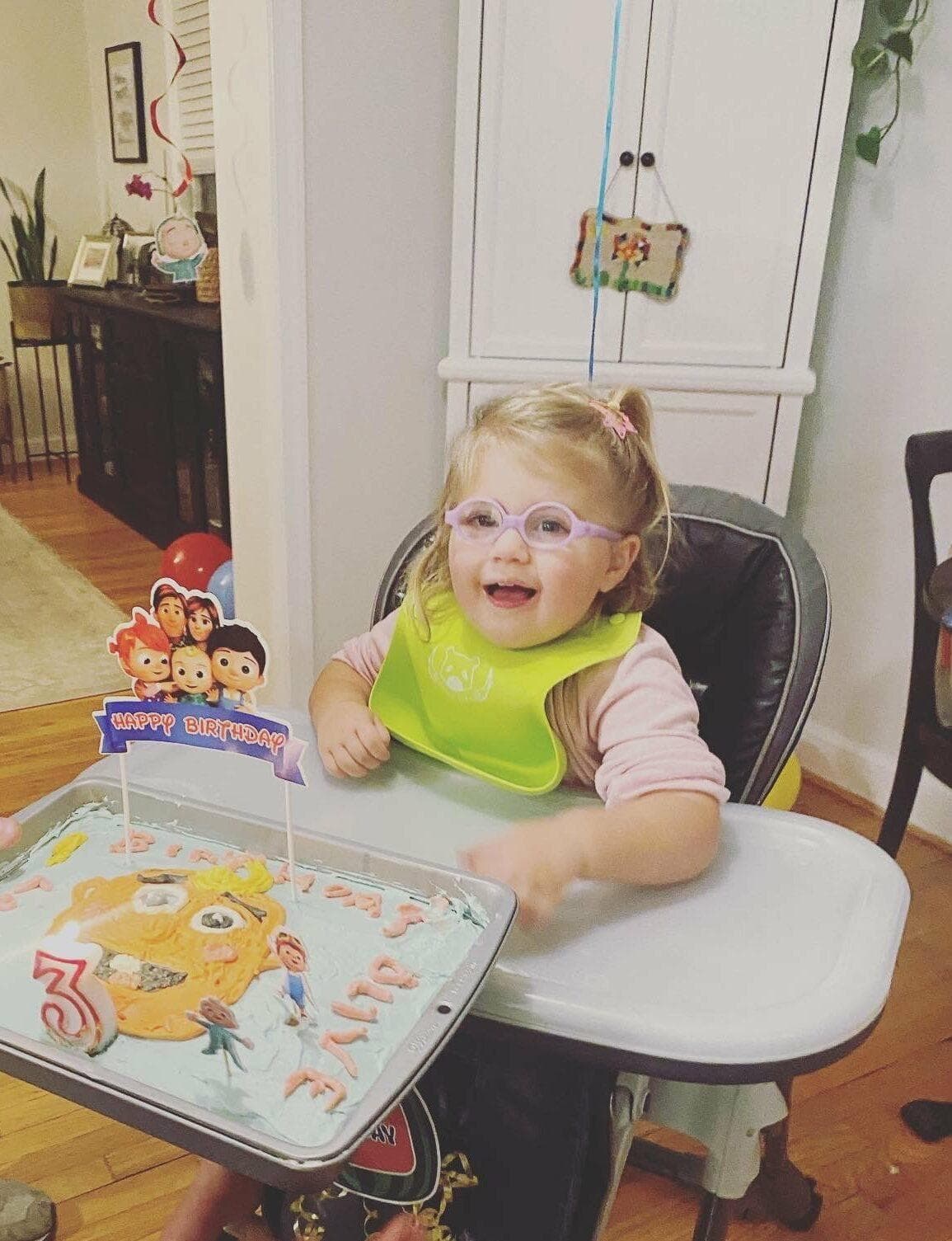
About Lunapark
Olive’s disease is so rare that it doesn’t have a real name — but based on previous research she was diagnosed with Neurodevelopmental syndrome with hypoplasia of the corpus callosum and epilepsy. There were four other children in the world who have similar symptoms to Olive with a mutation in the same LNPK gene. These children have significant cognitive, motor and speech impact — with only two of the four able to walk and speak a few words. One child had seizures so debilitating that she is now in a vegetative state.
After conferring with the scientist who studied the LNPK gene and these children to diagnose Olive, our doctor explained to us that there was no next step in treatment and no cure. Olive should continue with her therapies, and if she began to develop seizures or started losing skills, we would do a third MRI of her brain to see if things are getting worse. We can’t just sit back and wait for things to get worse.
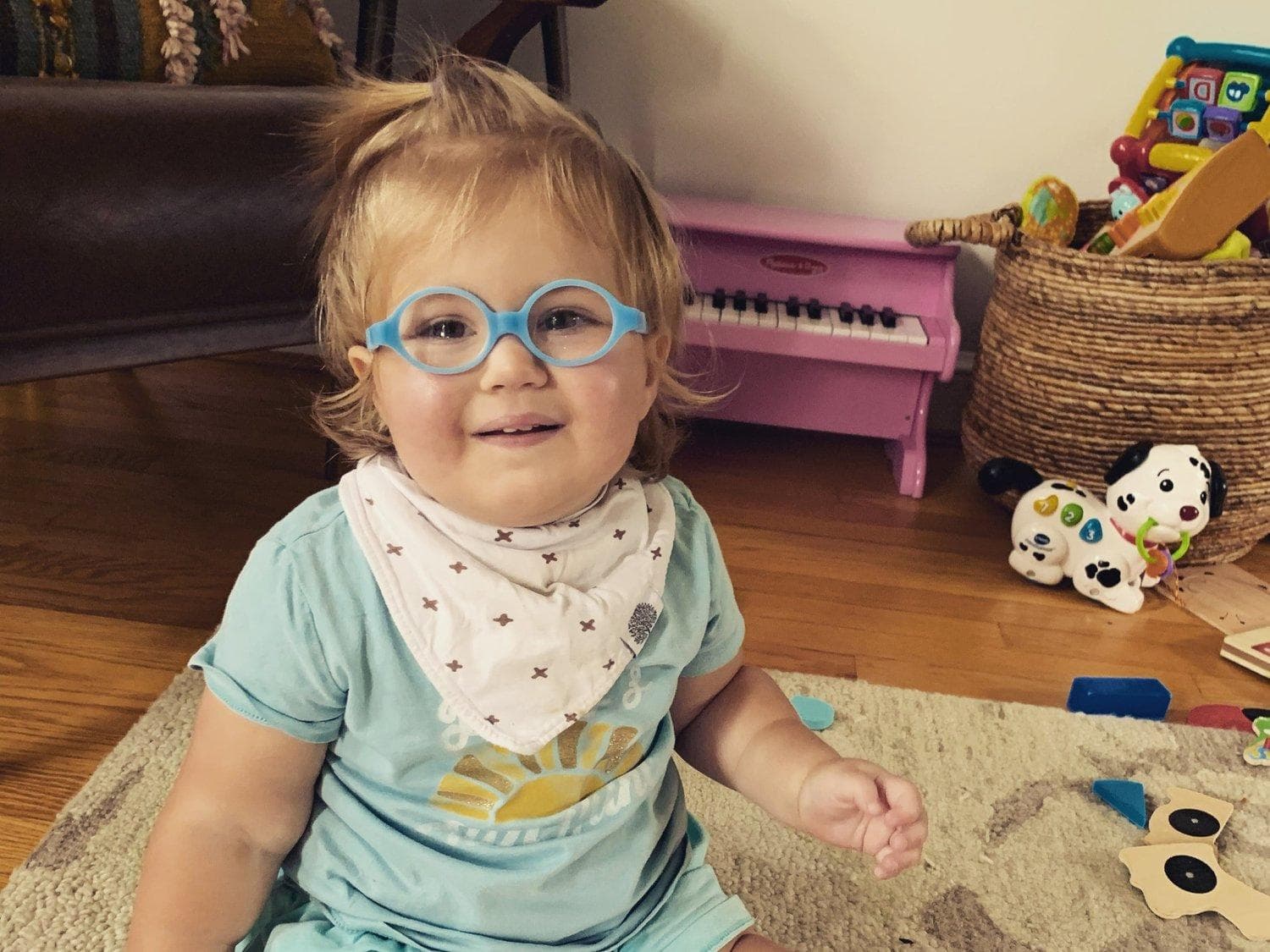
The Research
Our family is committed to doing everything in our power to help Olive and similar children diagnosed in the future, and founded RareOlive.org to move forward the science needed to understand and develop treatments for this disease.
In the first few months after diagnosis, we asked geneticists, doctors, and scientists what they would do in our situation— and the only answer was gene replacement therapy. Gene therapy is a multi-year effort that costs $3M, but it is the only cure for children like Olive. It has been successful in treating many diseases to date, and we believe that this is the best chance Olive has to stop the damage to her brain and live the best life she can. Like many families with rare neurodevelopmental & degenerative diseases, we take Olive to countless physical, speech and occupational therapies each week to help advance development. We are so grateful for their support of our family.
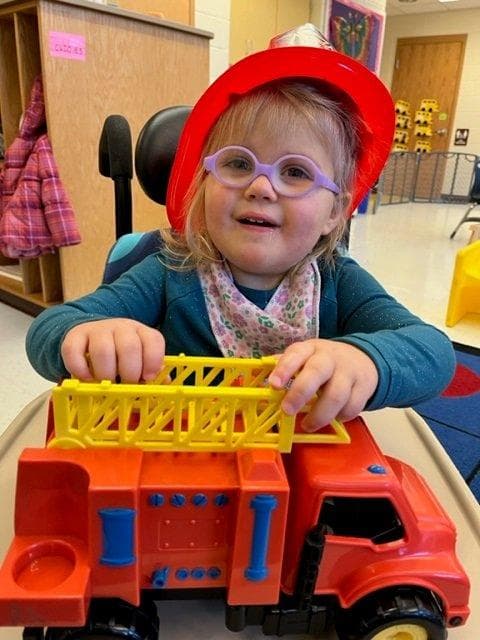
Genetic Research
In October 2022, we began connecting with other rare disease parents who have started gene therapy programs for their children, including one who successfully started a gene therapy and within 18 months has treated his son. With the mentorship of fellow rare disease crusaders and our determination, we are beginning this journey for Olive.
We’re asking for help as we pursue the science needed to understand and develop gene therapy for Olive. All donations go directly towards treatment development. We are incredibly grateful for your support of our beautiful and happy daughter, who we affectionately refer to as “Jolly Ollie.”

